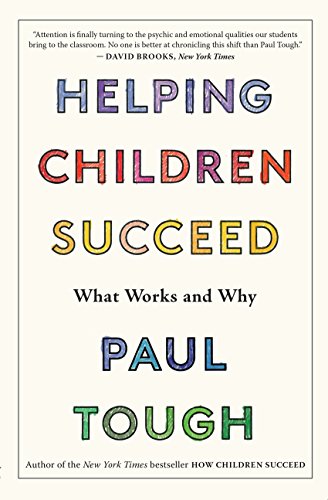Helping Children Succeed: What Works and Why by Paul Tough Link to heading
Summary Link to heading
“Helping Children Succeed: What Works and Why” by Paul Tough is an exploration of the elements that contribute to the success of children, particularly those from disadvantaged backgrounds. In this book, Tough moves beyond the question of what individual qualities contribute to children’s success to focus on creating environments that nurture these qualities. The book delves into non-cognitive skills like grit, curiosity, and self-control, which are crucial for long-term success. Tough emphasizes the role of supportive relationships, stress management, and a positive educational climate in fostering these skills. He examines evidence from educational programs, psychological research, and child development studies to derive insights into effective strategies.
Review Link to heading
Paul Tough’s book is lauded for its insightful analysis and comprehensive approach to understanding what truly helps children succeed. By synthesizing research across various disciplines, Tough presents a compelling argument that attention should be given to systemic and environmental factors rather than innate traits or talents alone. The book is praised for its clarity and accessibility, making complex concepts understandable to a wide audience. However, some critics may find that the book lacks focus on practical implementation or detailed methodological insights into how certain interventions could be effectively scaled across different contexts.
Key Takeaways Link to heading
- The development of non-cognitive skills like perseverance, curiosity, and resilience is crucial for children’s success.
- Creating supportive and nurturing environments can significantly impact children’s ability to develop these skills.
- Reducing stress and building stable support systems in education and family settings help children thrive.
- Initiatives that focus on enriching children’s social and emotional development are as important as academic initiatives.
- Comprehensive policies and community involvement are essential in overcoming systemic barriers for disadvantaged children.
Recommendation Link to heading
“Helping Children Succeed: What Works and Why” is highly recommended for educators, policymakers, parents, and anyone interested in child development and education reform. The book provides valuable insights into creating environments that support the holistic development of children, especially those facing adversities. It offers an evidence-based perspective that can help drive conversations and actions around education policy and practice, making it a useful resource for those committed to enhancing educational equity and outcomes.
